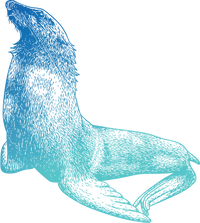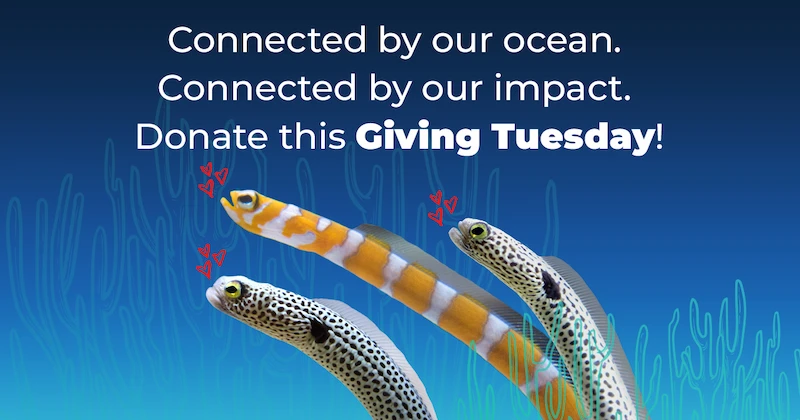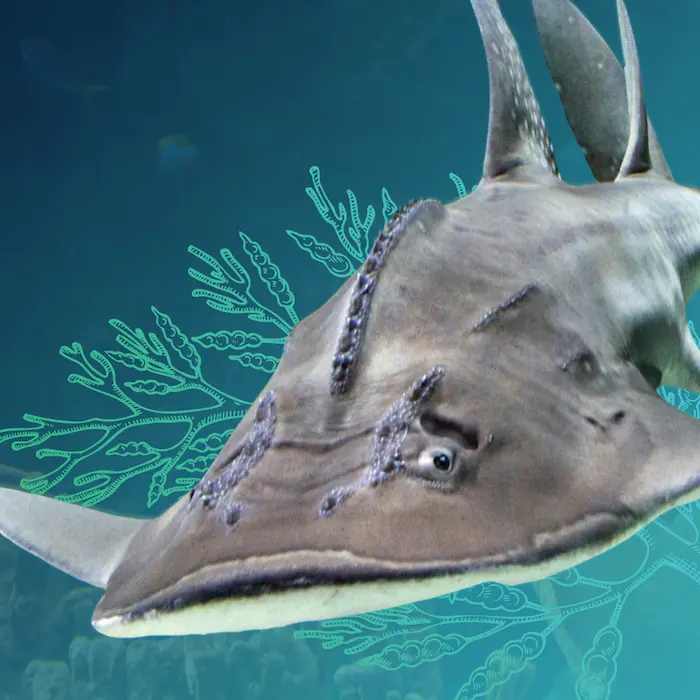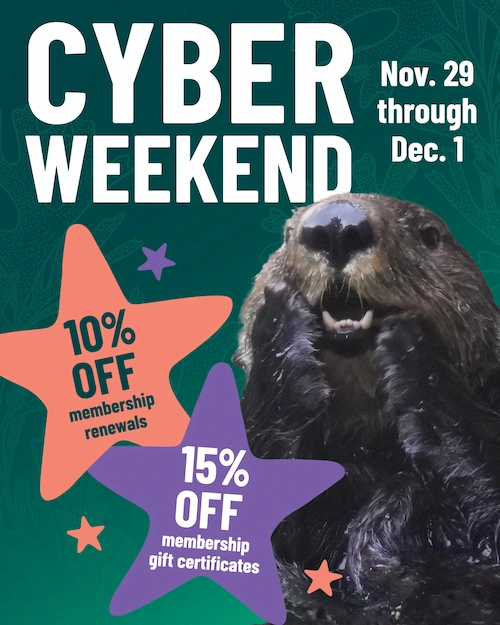It is with great sadness that we announce the death of river otter Ahanu. He passed away unexpectedly during a routine sedated exam on the morning of November 5.
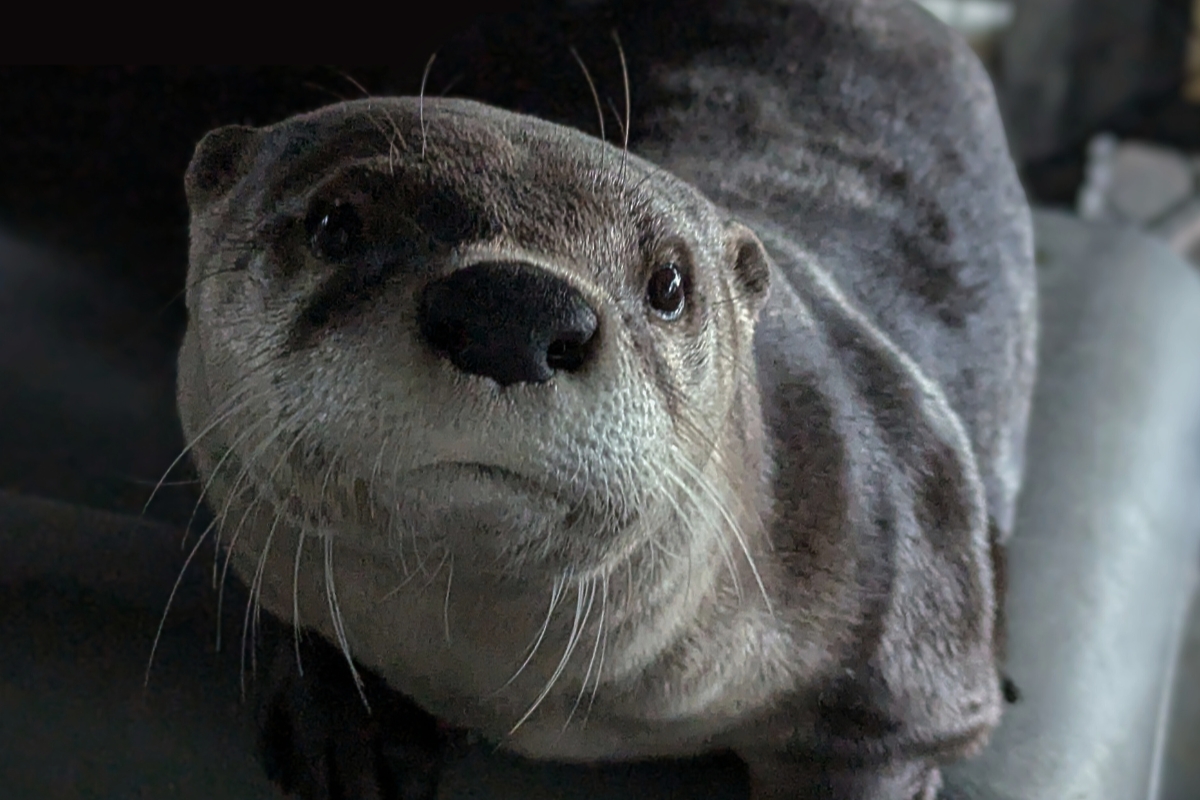
Ahanu, who came into our care in 2019, was beloved by Aquarium staff and volunteers—as well as the many thousands of Aquarium guests who loved watching him at play. Photo courtesy of Senior Animal Care Specialist Kelli.
Throughout his life, Ahanu had undergone numerous exams just like this one. Before the exam, he had been eating and playing normally. The sedation and exam itself went well, and he was stable throughout.
Sadly, sedation for any animal carries inherent risks and after the anesthetics were reversed, Ahanu did not rouse. Our full Veterinary team, along with several members of our Bird & Mammal team who were assisting with the exam, immediately began life-saving measures. After 50 minutes of CPR and multiple rounds of medications and assessments, the team made the difficult call that Ahanu had passed.
He hadn’t previously shown any respiratory symptoms—such as trouble breathing—but, during the X-rays and ultrasound that were part of the exam, our team discovered that one of Ahanu’s lungs showed abnormalities. We don’t yet know whether this affected his passing; it’s one of several questions our care team will be looking into as they perform his necropsy.
A long, playful life
Ahanu’s name means “he laughs” in the Algonquian language—and it’s no surprise that he captured so many hearts: He was born on Valentine’s Day in 2011 at the Oakland Zoo. He was transferred to the Denver Zoo at age 2 before coming into our care in 2019.
Ahanu joined us as a habitat-mate for Molalla, who had been living solo after his companion, a geriatric river otter named Skagway, passed away several months before.
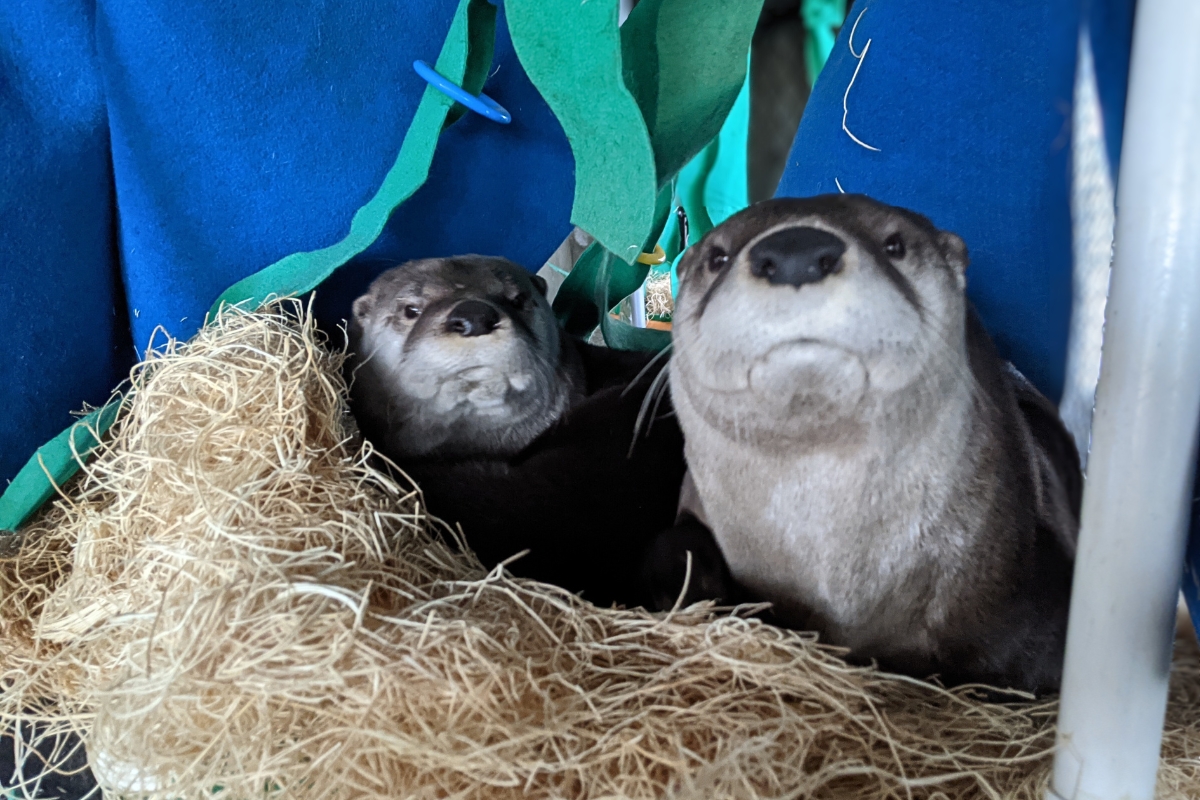
Ahanu (at right) cozying up with his habitat-mate, Molalla—affectionately known as Mo by his caregivers—in their habitat’s den. Photo courtesy of Senior Animal Care Specialist Kelli.
In zoos and aquariums and in the wild, the social structures of male river otters vary— they may live with their litter mates, alone, in bachelor groups (like the one formed by Ahanu and Molalla)—or even, temporarily, in family groups for breeding purposes. North American river otters are managed under an Association of Zoos and Aquariums (AZA) species survival plan—through this program, animals are transferred to AZA-accredited zoos and aquariums around the country to mimic species-specific social movements and enhance population sustainability and genetic diversity.
River otters have life spans of eight to 15 years in the wild; in human care (thanks to consistent veterinary care, readily available food and protection from predators), they may live for 15 to 20 years. At nearly 15 years old, Ahanu was entering his senior years—but he was still known for his playful antics, not to mention a voracious appetite.
Remembers Veterinary Technician Erika Russ Paz, “I always enjoyed going up for a training session with Ahanu and watching him chow down. River otters are extremely cute when they eat but have no manners. They just toss their heads back and chomp down on their food with mouths fully open, then stare at you insistently for their next piece.”
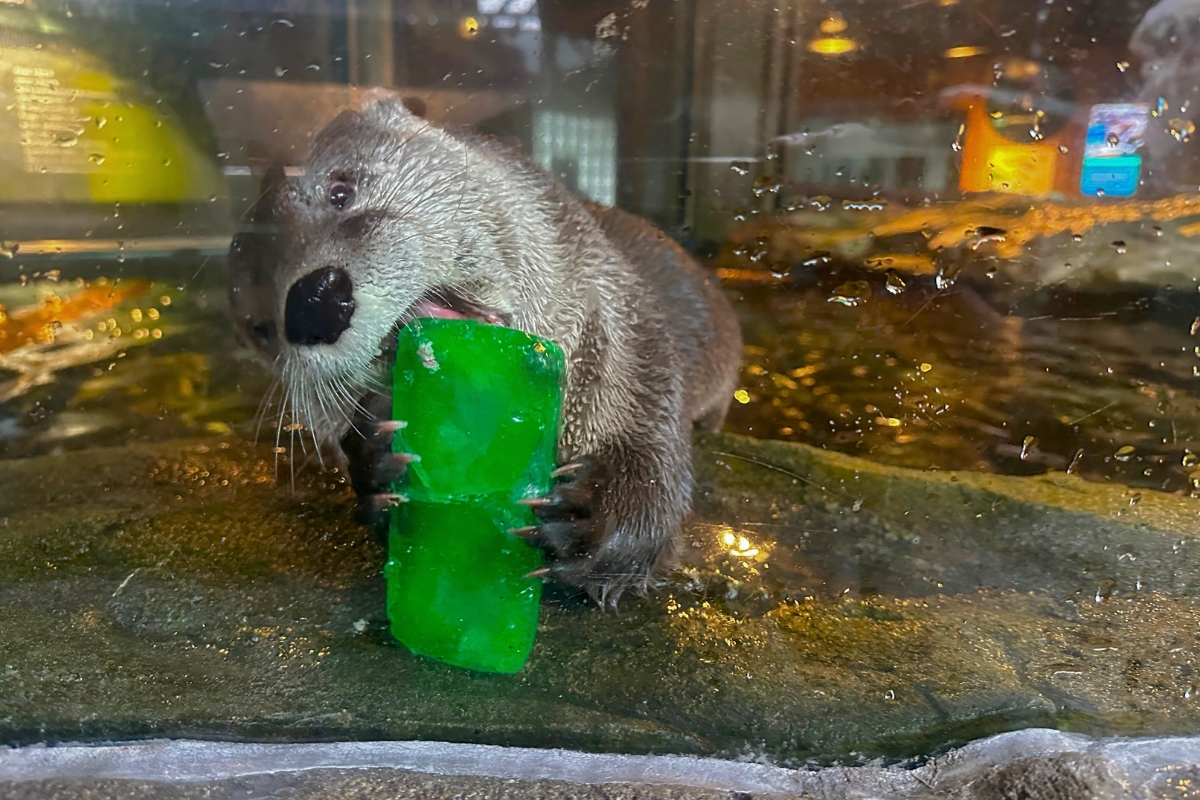
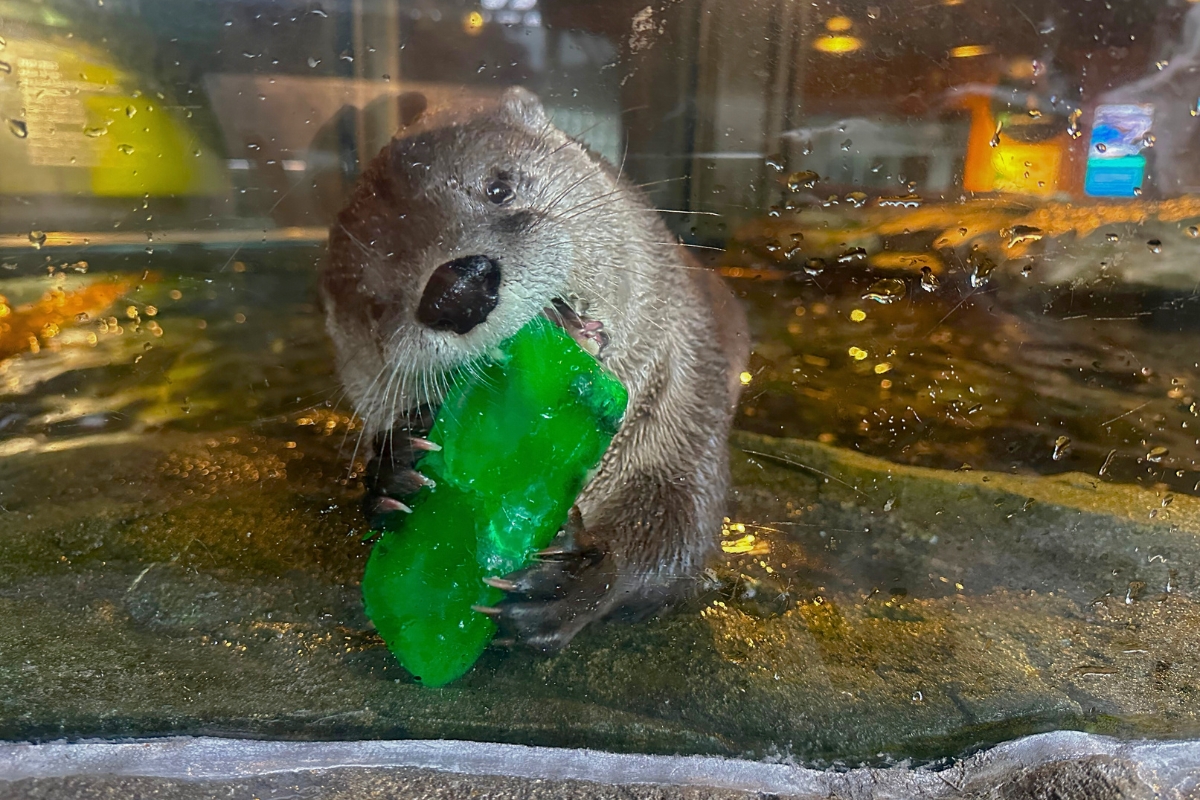
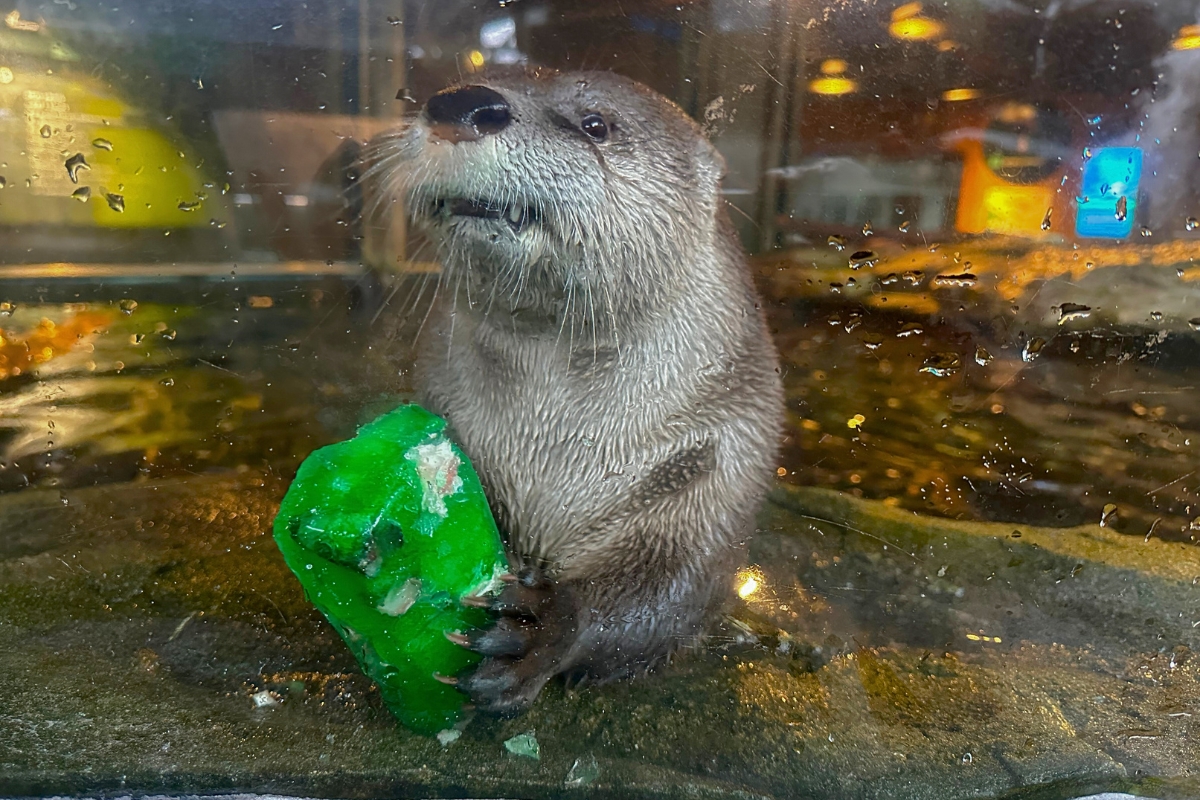
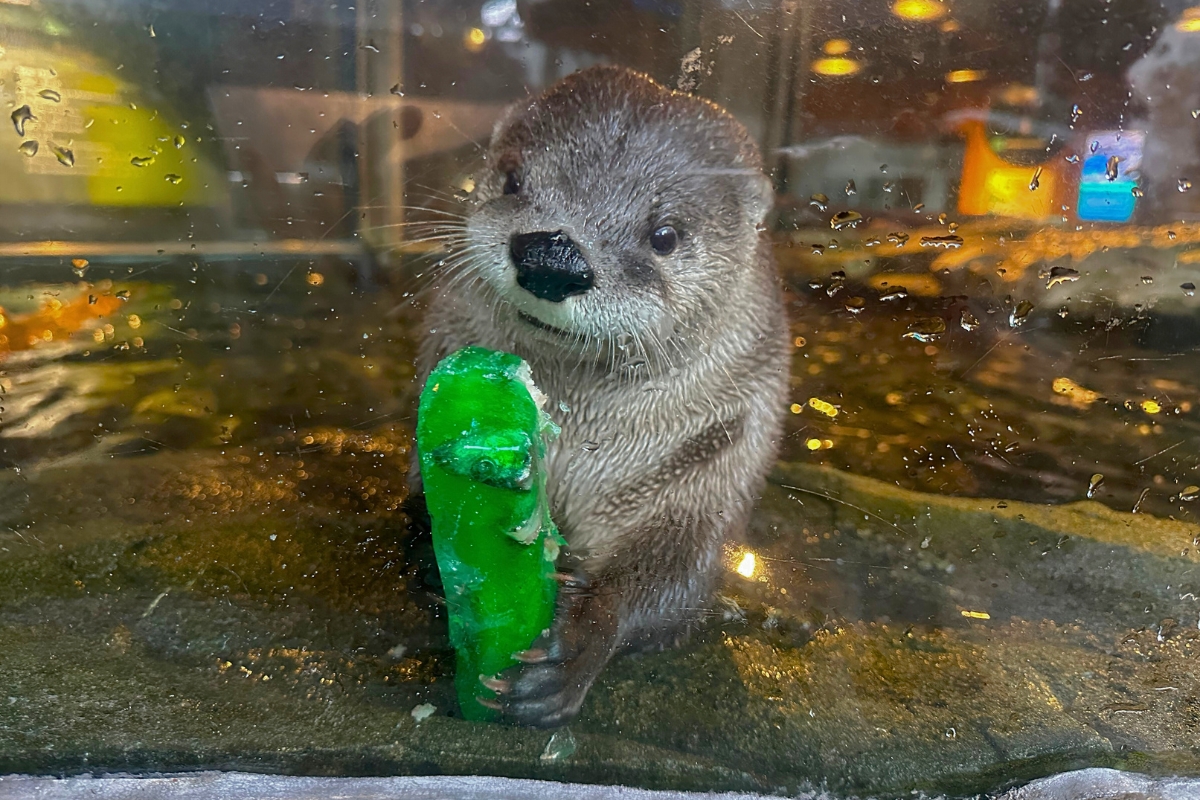
Ahanu devouring a special ice treat, stuffed with some of his favorite foods. Photos courtesy of Senior Animal Care Specialist Taylor.
An important ambassador for marine conservation
Ahanu not only delighted the hundreds of thousands of Aquarium guests who watched him at play—he also helped people learn more about the importance of his species in the broader scope of ocean health.
“With grace, agility, and enthusiasm Ahanu introduced millions of people to the charismatic nature of North American river otters. He moved people to care about his species, and the aquatic environments we share,” says Seattle Aquarium President & CEO Peggy Sloan.
She continues, “North American river otters represent a conservation success story. Nearly wiped out by the fur trade, they recovered due to successful reintroductions and habitat protection. Today these otters thrive in Washington. Ahanu’s story is one of environmental optimism and conservation success. His loss is felt by his care team and his large fan base—and these emotions mix with gratitude for the joy, empathy and action he inspired over many years in our care.”
Sad and loving farewells
When Vice President of Animal Care Lisa Hartman announced Ahanu’s passing to our staff, she noted, “Losing an animal is one of the hardest parts of our work, and it can be especially hard to navigate when the loss is unforeseen. Our teams provided Ahanu with the utmost care before, during and after the exam. Just as in our own lives, sometimes loss happens quickly and without warning.”
Ahanu’s loss is deeply felt by the devoted caretakers who knew and loved him over his years with us. Remembers Animal Care Specialist Ana Ibarra, “Ahanu was always up for a treat. Whenever we called the boys to feed them, Ahanu would be the first one to head up—but oftentimes he had to come back to their den and wake up Mo so they could go together.”
Former Supervisor of Birds & Mammals Aubrey Theiss shared some thoughts too. “Ahanu, I hope you’re blowing tons of raspberries, scratching everything you see, peeping at salmon, climbing trees and scaring hummingbirds, chewing rib bones, chasing minnows and digging all the holes. RIP, you crazy little guy.” And, from former Senior Animal Care Specialist Cheryl Becker, “Rest in peace, sweet boy. He always used to make me laugh at how he would partially sit on tubs—it looked like he was a lounging mermaid.”
Ahanu and Mo enjoying a cold plunge together. In the wild, river otters make their homes in a variety of habitats, near both marine and fresh water. Video courtesy of Animal Care Specialist I Anthony.
Ahanu’s current caretakers are now working to ensure that Molalla, Ahanu’s habitat-mate, receives extra support during this change. As noted earlier, it can be natural for males of this species to live alone—and we’ll be sure to provide updates in the future with any news of a new companion for Molalla.
In the meantime, we invite you to check our social media channels for more photos and to share your own memories of Ahanu. Thank you for joining us in our grief. Ahanu will be deeply missed.
